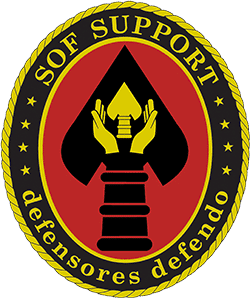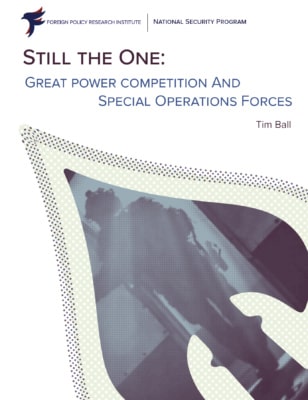Great Power Competition and Special Operations Forces
Download Still The One: Great Power Competition and Special Operations Forces
With the unveiling of the 2018 National Defense Strategy, then-Secretary of Defense James Mattis announced that great power competition was now the “primary focus of U.S. national security.” After nearly 20 years of muddling through counterinsurgencies in Iraq and Afghanistan and special operations forces conducting counterterrorism operations around the world, the conventional U.S. military is echoing its post-Vietnam days by forgetting its recent conflicts and renewing focus on large-scale combat operations.
The irony of this focus is that the day-to-day struggle in great power competition is anything but direct armed conflict. While the conventional military sees it as a scenario in which special operations forces move to a supporting role for conventional forces, great power competition is the type of conflict in which special operations forces are already thriving and where they are needed more than ever.
Despite the perception that special operations forces are overly focused on counterterrorism and direct action, the majority of special operators spend their time working with and training partner forces around the world. It is through these partnerships that the United States conducts day-to-day competition with its adversaries by denying them influence and depriving them of potential allies.
The views expressed in this article are those of the author’s alone and do not necessarily reflect the position of the Foreign Policy Research Institute, a non-partisan organization that seeks to publish well-argued, policy-oriented articles on American foreign policy and national security priorities.

